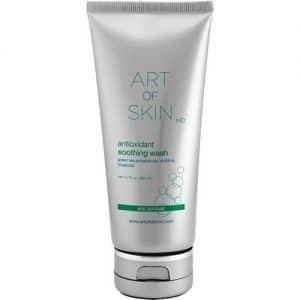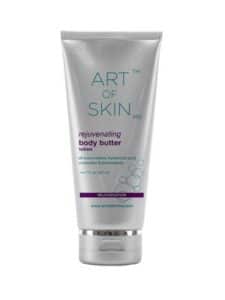Shower Skin Damage? Last month, Dr. Palm answered some must-know skincare questions for Shape.com talking specifically about how seemingly-harmless shower routines could be damaging your skin. She breaks it all down with what you could be doing wrong, why it’s damaging and how to fix it!
Using the Wrong Soap
The wrong soap can be very drying to the skin. Some of the most popular brands of soap available over the counter (for example, Irish Spring, Dial and Lever 2000) use soap detergents to cleanse the skin. This might sound harmless, but these soaps strip skin of not only dirt but also the natural moisturizing factors that keep the skin barrier intact and keep the skin hydrated.
The Fix
Look for soaps that contain moisturizing agents, such as ceramides. Ceramides are a naturally occurring cholesterol-derived component to our skin that is devoid when skin is dry or eczema-prone. A great face and body wash that Dr. Palm recommends is our Art of Skin MD Antioxidant Soothing Wash.
Missing An Area of Soap When Rinsing
It is important to make sure soap is completely rinsed off, as dried soap residue can cause an irritant dermatitis to the skin that includes redness and flaking of the skin. The most common area of the body Dr. Palm sees this happening in her patients is soap residue left behind in the finger webs during hand washing. Most often this occurs on the ring finger, not because someone is allergic to the metal in the ring, but because the trace of soap is not washed away under the band of the ring.
The Fix
The most obvious way to remedy this is by removing the ring during hand washing, and for all other areas on the body, make sure soap residue is thoroughly removed from the skin. If an outbreak is particularly severe, Dr. Palm prescribes a topical steroid cream or ointment to apply twice per day until the redness or rash subsides. The skin will often be dry afterward, so using a gentle and well-tolerated bland moisturizer can be very beneficial. Look for moisturizing ingredients such as ceramides, hyaluronic acid or free fatty acids as they often speed up the healing process.
Not Changing Loofahs or Towels Often Enough
Loofahs and towels are called “fomites” in medical terms – this means a non-living object capable of holding onto microbes such as bacteria and transferring it to humans. Bacteria and viruses are everywhere, and proper cleaning, along with proper cleaning agents, ensure that bacterial and viral counts remain low. Not cleansing our showering appliances (loofahs, towels, ultrasonic cleaning devices, and body brushes), allows dead skin and microorganisms to live in abundance together and propagate, greatly increasing the chance of infection, irritation or malodor.
The Fix
Dr. Palm highly recommends patients wash towels after at most several uses and loofahs or cleansing devices weekly.
Using Too-Hot Water
Hot water is harsh on the skin’s microenvironment. It causes vessels to dilate, leading to redness. The hot temperature also strips away the skin’s natural oils and interrupts our skin barrier. Skin feels dry, itchy and even tight.
The Fix
Tepid, warm water showers are the most ideal temperature for the skin. It allows for the best skin hydration, especially when an appropriate lotion or cream is applied immediately after a shower to lock in that precious moisture. Dr. Palm loves the new Art of Skin MD Rejuvenating Body Butter for a great combination of hydrating and toning the skin.
Scrubbing Too Hard When Washing Or Drying
Overly aggressive cleansing or scrubbing can cause irritation to the skin, leading to redness, rash and even eczema exacerbation. It interrupts the skin barrier, creating an avenue for secondary skin infection.
The Fix
Rather than a physical exfoliation of skin through mechanical disruption such as harsh brushing or scrubbing, consider using a chemical exfoliating wash such as one containing alpha hydroxy acid, glycolic or lactic acid. If you like to use a tool or instrument to help cleanse your skin, Dr. Palm recommends that her patients who have sensitive skin use a soft brush head on their sonicating cleansing brush and use it no more than twice daily. Always be sure not to dry too hard as well, as it can be just as damaging as scrubbing too hard.
Using Too Much Soap
Cleansing agents are meant to be used in approximately a quarter-to-silver-dollar size dollop. Using too much soap is not only tougher on the pocketbook but it also leads to greater concentrations of soap on the skin, increasing the chance of irritation and dryness.
The Fix
Just remember that too much of a good thing can spoil bath time. Resist the urge to overuse, shower on – just a dab will do you!



